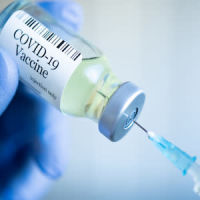People across the world heaved a sigh of relief when the first COVID-19 vaccine was approved. But, as is human nature, happy news is typically followed by debate, controversy, ifs and buts and what-nots. The COVID-19 vaccine is no different.
As the distribution of Pfizer-BioNTech and the Moderna vaccines began across the world, so did the debate about the second dose. Should we? Shouldn't we? Delay? Not delay? Is the second dose even needed if the first dose is so effective? Perhaps the second dose could be delayed for three weeks? Four weeks? Five weeks?
Now that the Johnson & Johnson vaccine has been approved, and (oh no!) it is a "single-dose" vaccine, what direction will the debate take? If a single-dose vaccine is already approved, why do we need a two-dose vaccine? If the single-dose vaccine does not need to be stored at very cold temperatures and can simply be refrigerated, why should we even bother with the Pfizer and Moderna vaccines? And so it continues.....
And if things weren't confusing enough, several scientists have suggested that the dosing schedule could be adjusted (even though Pfizer does not recommend it, nor has alternate dosing been tested). The second-dose delayed strategy has already been employed in the U.K.
The fact is that it is always a good idea to follow the "recommended" dose for any medicine. Vaccines, in particular, are designed to teach our body the ability to fight a pathogen. Second shots, for most vaccines, are advised because they help prolong the protection against viruses and pathogens. Both the Pfizer and Moderna vaccines trigger antibody responses the second time they are administered. Hence, the second dose is essential to strengthen our body's defence against COVID-19. Obviously, the first dose offers protection. It would not be approved for use if it didn't. But that does not mean the second dose can be ignored OR that the second dose should be delayed.
Experts who are against the dose-delaying strategy explain that the clinical trials have not tested how long the protection of the first dose lasts, therefore delaying the second dose could result in our body's immune system forgetting the lesson taught by the first dose. What does that mean? That the first shot was more or less a waste. On the other hand, those in favour of the dose-delaying strategy claim that it's better to vaccinate more people with the first dose and get partial protection for more people than complete protection for fewer people.
It is difficult to determine who is right and who is wrong. However, as far as dosing schedules are concerned, it is generally good to follow what the label says. Hence, it would be in everyone's interest if COVID-19 vaccinations follow the dosing recommended by Pfizer, Moderna and Johnson & Johnson. It may be better for all of us in the long-run.



























